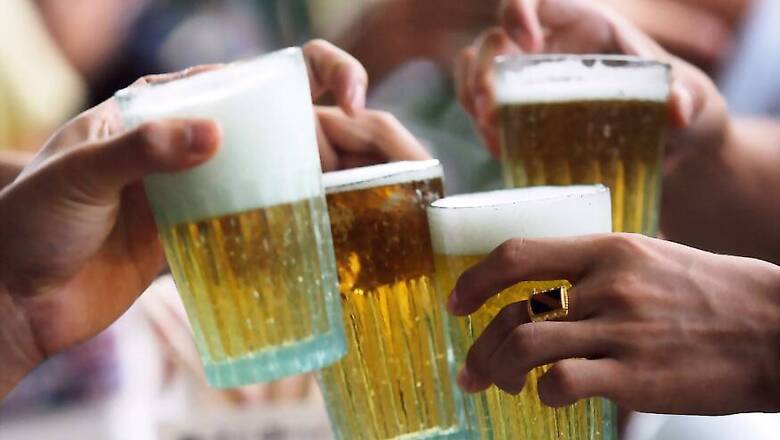
views
A new study now finds that not finishing education can turn a person into a binge drinker. Researchers have deduced that people who have done an extra four years of school were 50 percent less likely to become alcoholics.
According to a story published in Daily Mail, researchers found that men and women who completed school were also more likely to consume wine, while those who did not, were seen to drink more distilled spirits, beer and cider in comparison.
Study experts say this is not measured so much by the amount they drank over the course of their lives, but the fact that they binge drank more frequently.
According to the team from National Institutes of Health, the findings suggest that promoting education could thus, be a useful tool in public health campaigns that warn against the ill effects of alcohol dependence and abuse.
For the study, published in the journal Molecular Psychiatry, the team recruited about 780,000 men and women.
Researchers looked at 53 genetic variants on whether they were linked with non-completion of school and in the second half, they looked at genes which were present in the DNA of the people who reported alcohol abuse.
According to the results, genes linked to completing more school years was not associated and did not affect total amount of alcohol people drank in a week. However, it was linked to less total binge drinking.
Study authors found that an extra 3.61 years of school was associated with approximately 50 percent reduced risk of alcohol dependence.
Furthermore, researchers concluded that those who completed more years of school were also less likely to have memory loss while drinking and were less likely to consume alcoholic beverages like beer, cider and distilled spirits.
Also, the study found that beer and spirit drinkers were at an increased risk of drug use and alcohol dependence.
Dr Falk Lohoff of the National Institutes of Health, who was one of the authors of the study, revealed that it is important to understand that the genetic variants allowed them to investigate the possible effect of education on alcohol consumption and dependence; it did not mean that the educational attainment of a person could not be modified.
Researchers concluded that the study suggests that increasing educational attainment may be a useful target for prevention programs against problematic alcohol use.
Follow @News18Lifestyle for more

















Comments
0 comment